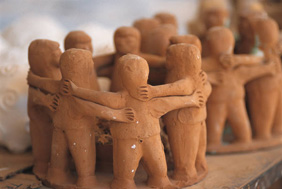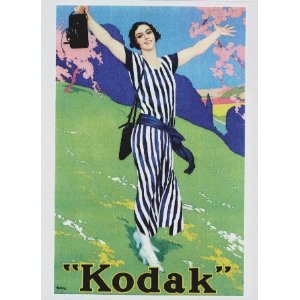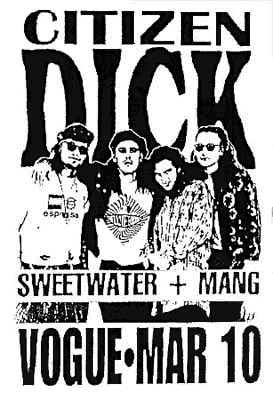The Other One Percenters
The entire '99% vs. the 1%' is now a well established concept (thanks to the 'Occupy' movement), or method of describing in very broad terms the income, (and some might say opportunity), disparity that exists in the US economy. When you hear these terms, you immediately understand the concepts, take your own position on the merits of each point of view, and sometimes self-identify with one group or the other. Let's hug it out
Let's hug it out
But recently I read an interesting piece on the AdAge Digital site about a different kind of 1%, (that was an awkward transition, admittedly), specifically the 1% of a company or a brand's social media fans that seem to actively engage with said company or brand. The article, titled 'Study: Only 1% of Facebook 'Fans' Engage With Brands', recounts a recent piece of research conducted by the Ehrenberg-Bass Institute that claims to show that only about 1% of the self-identified 'fans' of a brand on Facebook, (certainly not the only social platform, but indeed the largest), actually 'engage' with the brand by commenting, tagging, sharing, etc. actively with the brand and the content. The vast, vast majority, the other 99%, simply identify as fans, get exposed to some of the brands' content, and continue on with whatever else they were doing.
While seemingly offering a really low return on investment to marketers, at least according to the study's authors it doesn't paint a totally bleak picture. From the AdAge piece:
"I don't think it's a bad thing," said Karen Nelson-Field, senior research associate for Ehrenberg-Bass Institute who describes herself as a "Facebook advocate." "People need to understand what it can do for a brand and what it can't do. Facebook doesn't really differ from mass media. It's great to get decent reach, but to change the way people interact with a brand overnight is just unrealistic."
In this understanding of the marketing and media worlds, social is just another media channel useful for its reach rather than any notion of engagement.
While this article and the study it refers to are in a strict sense focusing on consumer brand engagement, I think they offer some food for thought for the Human Resources and Recruiting professionals who are increasingly looking to social platforms like Facebook and Twitter to create interest, conversation, and dare I use the word again, engagement for their own purposes. The main point, that an engagement level of 1% might be the baseline is instructive as HR pros create their forecasts and plans.
But the second point the AdAge piece brings up is even more thought provoking - namely whether or not social platforms like Facebook are truly brand engagement platforms, or just another marketing and messaging channel like newspaper ads, company web sites, or large job boards. I know we like to think that with social all or at least many of the traditional rules no longer apply, but this study (and others), suggest that maybe the change is not happening so fast.
What do you think? Does the 1% number hold up in your experience? And does it even matter?

 Steve
Steve


